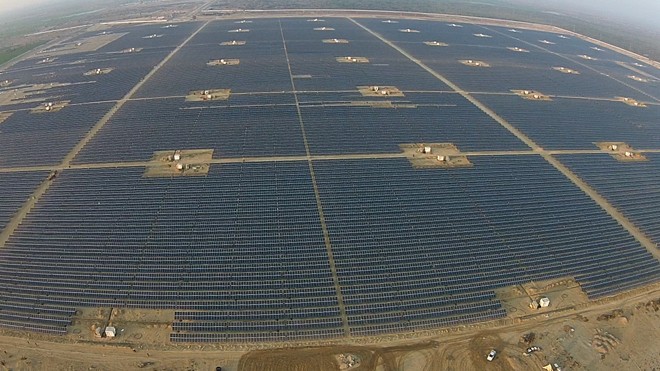
Corruption and lack of clarity mar the execution of mega development projects

Do we lack the art of negotiations, or is there something wrong in our handling of vital mega projects, resulting in massive increase in their cost when compared with similar projects awarded in the neighbouring country.
For instance, on March 15, 2015, NEPRA approved a levelised tariff of PKR 14.85 per KW for Quaid-e-Azam Solar Power Project, while its capital cost stood around $1.5 million per MW (mega watt). On January 18, 2017, NEPRA raised the tariff for the January-March 2017 quarter for this project to PKR19.33 per KW. Against it, on January 10, 2017, M/s Solenergi Power of Sweden bid to complete a 750 MW solar park in Madhya Pardesh (India) at equivalent of PKR 5.19 per KW and at a capital cost of around $690,000 per MW.
On August 10, 2015, NEPRA approved a levelised tariff of PKR10.60 per KW for Hawa Energy Limited’s Wind Power Project; while for similar projects in Tamil Nadu and Maharashtra India has approved a levelised tariff IRS 3.39 per unit (equivalent of PKR5.33 per unit).
A comparison of the per unit tariff and per MW capital cost suggests that "something must be terribly wrong here," says Dr. Farrukh Saleem in a write-up entitled "Power Rates" in daily The News (February 26, 2017).
Earlier, on February 4, 2017, a committee of the National Assembly was informed that the Engro Powergen Thar Coal-II, Port Qasim Power Plant, Thar Coal Power Plant, Hubco Coal Power, Thar Energy Limited, Sahiwal Coal Power, Suki Kinari Hydro and Karot Hydro Power Projects, having a cumulative generating capacity of 7,680MW, will cost $12.5 billion. These projects are being financed through a Chinese loan of about $9.5 billion at an interest rate of LIBOR plus 4.5 per cent; while the remaining amount will be contributed as equity by the sponsors. Additionally, China Export & Credit Insurance Corporation will charge an insurance premium of seven per cent though Pakistan has guaranteed to purchase each and every unit of electricity that will be generated by these projects.
Furthermore, the return on equity for these projects appears to be exorbitantly high: In the case of Sahiwal Coal Power Project, it "shall be 27.2 per cent;" while for the 1,320MW Thar Coal Power it stands at 34.49 per cent. Perhaps, it is the result of awarding contracts without bids/open competition! But, some sceptics term it a case of privatising gains, socialising risks!
Observations by the country’s apex court, statements by the leaders and the investigative stories by the media persons lead one to endorse Dr. Farrukh’s conclusion: "Something must be terribly wrong here."
The media keeps highlighting stories of mismanagement, inefficiency and corruption, at various tiers, in our society time and again. Perhaps, knowledge about the gory state of affairs impelled President Mamnoon Hussain to publicly deplore, on February 27, 2017 ‘the habit of the people not to work honestly.’
The main reason for the growth of this scourge, according to observations by the Supreme Court, is the failure of ‘the watchdogs to prevent corruption, corrupt practices and fraud.’ These watchdogs ‘remained in deep slumber till the time the crimes were fully consummated and then, on the complaint of the aggrieved community/people, they started investigation.’
The court noted that prevention of such crimes was the constitutional and statutory obligation of NAB, FIA, anti-corruption establishment, police and all the relevant ministries/authorities/statutory bodies within the provinces and the federal government, but they had been found consistently inconsistent in performing such obligatory duties well in time… "This phenomenon of laxity and negligence on their part would not and should not be tolerated anymore," the court ruled.
One must welcome the ruling of the apex court and extend full support to efforts in curbing corruption and corrupt practices from the society. No doubt, it is a herculean task, however, it must be accomplished with commitment, dedication and an iron hand.
As regards mismanagement, inefficiency, lack of negotiating skills and corruption, these are banes that result in raising the cost of projects exorbitantly high, inflicting heavy losses upon the nation on the one hand and on the other making our industrial goods uncompetitive in the global market and thus becoming prone to affecting our exports adversely…The elements that have a tendency to seek personal gains at the national cost must be identified, exposed and dealt with an iron hand.